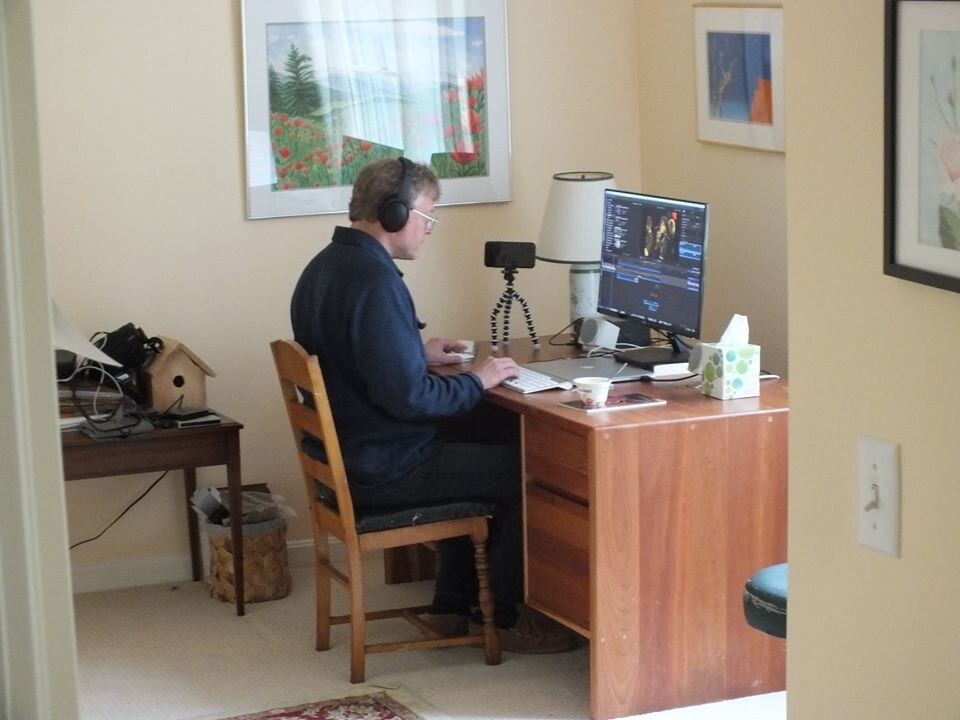This documentary film has been fifteen years in the making. It began when I started filming the jazz scene in Shanghai in 2004. That year, an exciting new club called JZ had just started, while the Cotton Club down the road was still going strong with its killer combo of blues, funk, and soul music.
Since then, many other clubs have opened and closed in the city, but the JZ Club, Cotton Club, and the House of Blues & Jazz are the clubs that arguably have made the greatest impact on the city’s jazz and blues scenes over the last 25 years.
Following a brief history of the city’s tumultuous 20th century told by veteran jazzman Bao Zhengzhen, one of the pioneers of the Old Man Jazz Band in the Peace Hotel, this film takes the story of the re-emergence of jazz and blues back to the 1990s. That was the time when HBJ and CC came out of Shanghai’s rebirth as an international metropolis. Over the next two decades, these clubs, along with JZ, funneled a panoply of jazz and blues artists from all over the world into Shanghai’s music scene, while also helping to train a whole generation of Chinese musicians, many of whom had graduated from the nearby Shanghai Music Conservatory, in the jazz and blues idioms.
The film features interviews and live performance footage of leading bands, musicians, scene-makers, and mover-shakers in the city's jazz and blues music scenes since the 1980s. These people include HBJ founder Lin Dongfu, CC co-founders Matt Harding and Greg Smith, and JZ founder Ren Yuqing. Others who appear in the story include Graham Earnshaw, Coco Zhao, JQ Whitcomb, Alec Haavik, Theo Croker, Willow Neilson, Matthew Cooper, Peng Fei, Jasmine Chen, Jorland Paulino, Denise Mininfield, Greg Luttrell, Mike Null, Tony Hall, and the late Earl Phenix (1976-2014). And many others appear as well.
Two years ago, in the summer of 2018, I finished a rough cut of the film, and screened it to a close circle of family and friends. Based on their feedback and others’, recently while sheltering in my parents’ home in Acton, Massachusetts, I had the opportunity to edit a finer cut of the film. I screened this cut to my parents (my only live audience right now), and to my surprise and delight, they enjoyed nearly every minute of it, even though it was almost two hours long!
I will continue making some fine adjustments to the film. I hope to have it ready for screening to a public audience later this year, in celebration of a century of jazz in Shanghai.
After finishing the latest cut, I made a couple of trailers for the film and posted them on YouTube. One trailer is over 3 minutes long and includes most of the people and scenes that I profile in the film. I had forgotten how excruciating it can be to make a trailer. It took several days of hard work and multiple versions before I felt I got it done right.
The other trailer is a minute and thirty seconds long. It’s for those of you out there who don't have the time or patience to view the longer version. This one was much easier to cut out of the 3-minute version:
Above: The 1:30 minute version of the film trailer. Enjoy!
Here’s a photo of me in my home office in my folks’ home in Acton, hard at work on the film.
I posted these trailers on Facebook and reached out to people who are in the film to view them. So far the reaction among my Facebook friends has been overwhelming positive. I am really looking forward to screening this film, hopefully in better times to come.
Finally, a wholehearted thank you to all of you who have helped me with this film project over the years. I hope this film does credit to the amazing musicianship and entrepreneurship of the people who appear in the film, who have enriched our lives in the city of Shanghai immeasurably.
